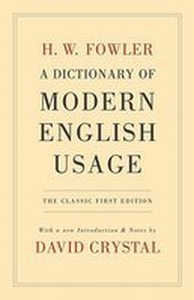- HOME
- INTRO TO THE FORUM
- USE AND MISUSE
- BADLY WRITTEN, BADLY SPOKEN
- GETTING
TO KNOW ENGLISH - PREPARING FOR ENGLISH PROFICIENCY TESTS
- GOING DEEPER INTO ENGLISH
- YOU ASKED ME THIS QUESTION
- EDUCATION AND TEACHING FORUM
- ADVICE AND DISSENT
- MY MEDIA ENGLISH WATCH
- STUDENTS' SOUNDING BOARD
- LANGUAGE HUMOR AT ITS FINEST
- THE LOUNGE
- NOTABLE WORKS BY OUR VERY OWN
- ESSAYS BY JOSE CARILLO
- Long Noun Forms Make Sentences Exasperatingly Difficult To Grasp
- Good Conversationalists Phrase Their Tag Questions With Finesse
- The Pronoun “None” Can Mean Either “Not One” Or “Not Any”
- A Rather Curious State Of Affairs In The Grammar Of “Do”-Questions
- Why I Consistently Use The Serial Comma
- Misuse Of “Lie” And “Lay” Punctures Many Writers’ Command Of English
- ABOUT JOSE CARILLO
- READINGS ABOUT LANGUAGE
- TIME OUT FROM ENGLISH GRAMMAR
- NEWS AND COMMENTARY
- BOOKSHOP
- ARCHIVES
READINGS IN LANGUAGE
This new section features links to interesting, instructive, or thought-provoking readings about the English language. The selections could be anywhere from light and humorous to serious and scholarly, and they range widely from the reading, writing, listening, and speaking disciplines to the teaching and learning of English.
The rigorous line-by-line editing of books is now a thing of the past
In “The Lost Art of Editing,” an article that came out in the February 11, 2011 issue of the Guardian.co.uk, Alex Clark laments that the rigorous line-by-line editing of books bas become a thing of the past. “In more broad-brush terms,” he says, “the question is whether the image of the word-obsessed editor poring over a manuscript, red pen in hand, has given way to that of the whizz-bang entrepreneur attuned to the market's latest caprice, more at home with a tweet than a metaphor.”
Clark, who was a panel member last year on a BBC2 Culture Show special on emerging novelists, read a lot of books by new writers and found that it can frequently be a truly exciting experience. “But what saps the spirit,” he says, “are the manuscripts that leave you with the question: why did no one sit down with the writer and point out where this isn't working? Why didn't a red pen mark the hackneyed phrase, or the stock character, or the creaky plot or dialogue? And, sometimes, why didn't someone deliver the unfortunate verdict: this simply isn't ready yet, and may never be?”
This sorry situation, Clark observes, appears to be the result of the trimming of publishing budgets, the increasingly regimented nature of book production, and the pressure on the time of book editors who now do detailed and labor-intensive editing work “in the margins of their daily schedule rather than at its centre.”
Clark says that the falling standards for book editing is also being hastened by the demands of the global marketplace, the advent of digitization, and the increased importance of sales, publicity and marketing in the publishing industry. “Publishing in its popular incarnation – the legendary long lunches, the opportunistic punts on unheard-of but brilliant young writers, the smoke-filled parties and readings – is probably gone for good,” he says.
Read Alex Clark’s “The Lost Art of Editing” in the Guardian.co.uk now!
RELATED READING:
In “Use Value,” an article that came out in the February 2011 issue of The New Criterion, Barton Swaim reviews H.W. Fowler’s A Dictionary of Modern English Usage: The Classic First Edition, which was made available in an inexpensive paperback edition by Oxford Publishing last year as part of its World’s Classics series. Swaim says that it’s a decision for which the publisher deserves much credit, but he argues that Oxford made a wrong choice in David Crystal, a staunch descriptivist, to write the introduction to Fowler’s unabashedly prescriptivist original work on English usage. “I say that not just because [Crystal] has done a terrible job of it, although he has,” Swaim explains, “but also because modern linguists are almost by definition incapable of understanding the function of a book like Fowler’s Dictionary.”

Read Barton Swaim’s “Use Value” in The New Criterion now!
Click to read comments or post a comment
View the complete list of postings in this section
(requires registration to post)







